Find Help
More Items From Ergsy search
-

Advice on neck pain and whiplash
Relevance: 100%
-

What is the role of pain management in treating whiplash?
Relevance: 72%
-

What are the symptoms of whiplash?
Relevance: 65%
-

What are the treatment options for whiplash?
Relevance: 62%
-

Is whiplash a serious injury?
Relevance: 60%
-
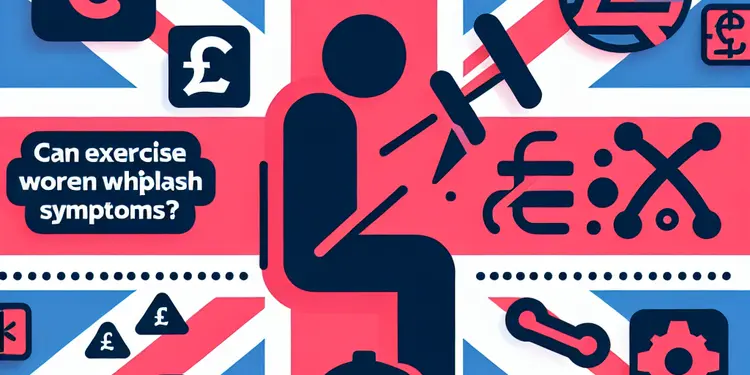
Can exercise worsen whiplash symptoms?
Relevance: 60%
-
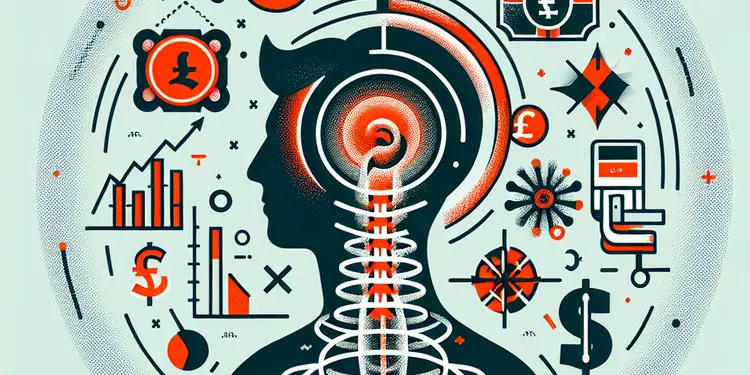
How long do symptoms of whiplash last?
Relevance: 59%
-
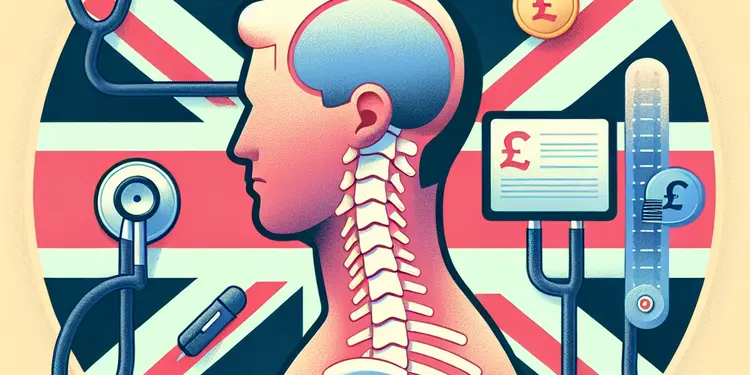
How is whiplash diagnosed?
Relevance: 58%
-

What is the best way to recover from whiplash?
Relevance: 58%
-

What is whiplash after a car accident?
Relevance: 58%
-

Does wearing a seatbelt prevent whiplash?
Relevance: 56%
-

How soon after a car accident do whiplash symptoms appear?
Relevance: 56%
-

Neck Exercises
Relevance: 56%
-

What causes whiplash in a car accident?
Relevance: 55%
-

Can whiplash have long-term effects?
Relevance: 55%
-

Can whiplash occur at low-speed impacts?
Relevance: 54%
-
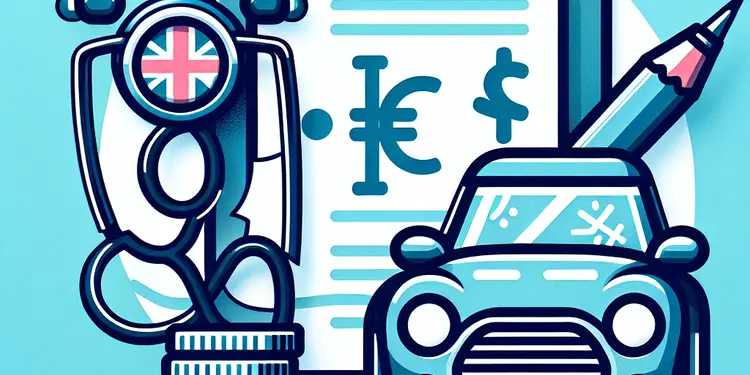
Is it necessary to see a doctor for whiplash after a car accident?
Relevance: 53%
-

Neck Exercises
Relevance: 52%
-

What medical tests are used to diagnose whiplash?
Relevance: 51%
-

Neck Care Exercises
Relevance: 47%
-

Head and Neck Cancer Diagnosis
Relevance: 40%
-

Can physical therapy help whiplash?
Relevance: 39%
-

Is rest important for recovering from whiplash?
Relevance: 38%
-

How can ice help with whiplash symptoms?
Relevance: 37%
-

Can you claim compensation for whiplash injuries?
Relevance: 35%
-
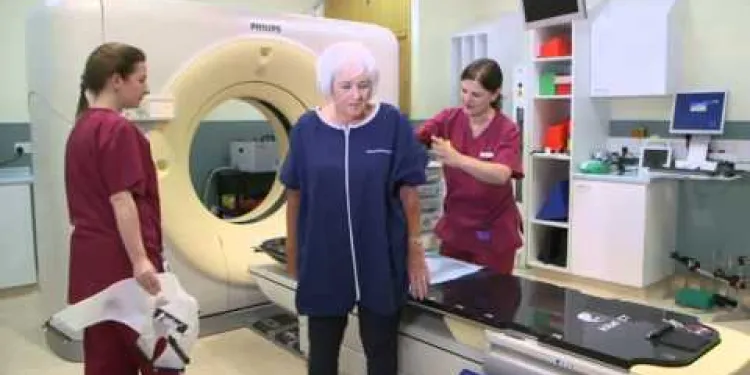
Radiotherapy to the Head and Neck: A Guide for patients and their carers
Relevance: 34%
-

Is a facelift painful?
Relevance: 30%
-

Royal Berkshire NHS Foundation Trust: Radiotherapy for head and neck cancers
Relevance: 29%
-

Shoulder pain | NHS
Relevance: 28%
-
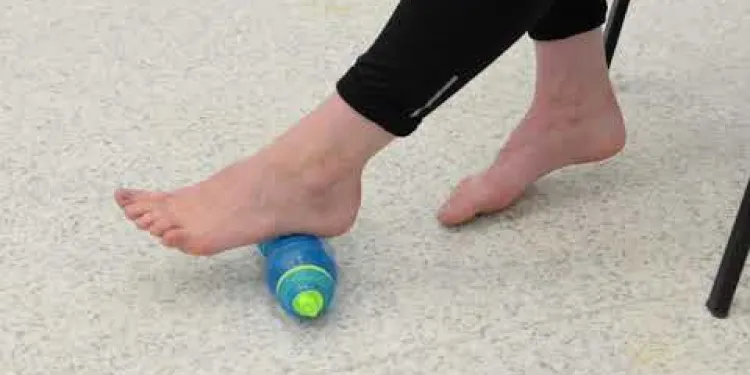
Foot Pain
Relevance: 27%
-

Is impetigo painful?
Relevance: 27%
-

How do chiropractors treat back pain?
Relevance: 26%
-

Is a mammogram painful?
Relevance: 26%
-

Is it possible to have a heart attack without chest pain?
Relevance: 26%
-

Shoulder pain | NHS
Relevance: 25%
-

Heel pain | NHS
Relevance: 25%
-
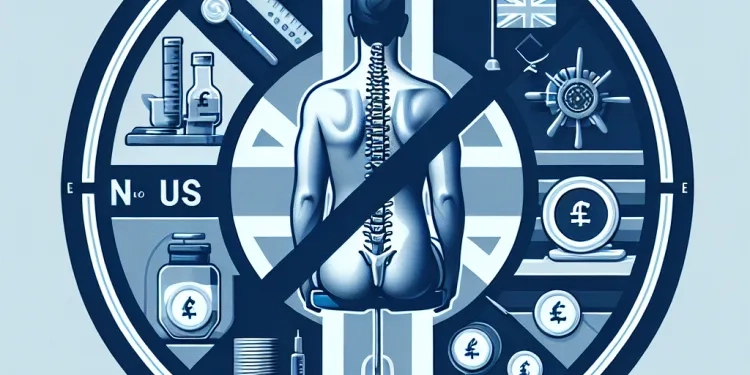
Are chiropractic treatments painful?
Relevance: 24%
-

Mechanical Lower Back Pain
Relevance: 24%
-

Will I feel pain during the procedure?
Relevance: 24%
-

Stomach ache and abdominal pain
Relevance: 24%
Advice on Neck Pain and Whiplash
Understanding Neck Pain and Whiplash
Neck pain and whiplash are common issues that can disrupt daily life. Whiplash is often caused by a sudden movement of the head, typically in car accidents, leading to neck muscle strain. In the UK, it's essential to understand the causes, symptoms, and treatments available to effectively manage these conditions.Symptoms and Signs
Recognizing the symptoms of whiplash is crucial for early intervention. Common symptoms include neck stiffness, headaches, dizziness, and pain in the shoulders or arms. If you experience any of these symptoms after an accident, it's advisable to seek medical attention promptly.Immediate Steps to Take
If you suspect a whiplash injury, applying ice packs to the neck can reduce swelling and pain. Over-the-counter pain relief medications, like ibuprofen or paracetamol, can also help manage initial discomfort. Remember to avoid any activities that may strain your neck further.When to See a Doctor
In the UK, if neck pain or whiplash symptoms persist for more than a few days or worsen, it’s best to consult a GP. Your doctor may refer you to a specialist or suggest imaging tests such as X-rays or MRI scans to rule out serious injuries.Treatment Options
Treatment for neck pain and whiplash may include physical therapy, which focuses on gentle exercises to restore mobility and strengthen neck muscles. In some cases, your doctor might recommend prescription medications or injections for severe pain.Self-Care and Prevention
Practising good posture and ergonomic habits can help prevent neck pain. Use a supportive pillow and take regular breaks if you work at a desk. Additionally, wearing a seatbelt and ensuring proper headrest positioning can reduce the risk of whiplash in car accidents.Seeking Legal and Financial Advice
In the UK, if your whiplash was caused by a car accident, you might be eligible for compensation. It’s advisable to seek legal advice to understand your rights and potential claims. Many solicitors offer no-win-no-fee services for whiplash injuries.Conclusion
Neck pain and whiplash can be challenging, but with timely medical intervention and proper self-care, recovery is attainable. Stay informed about your treatment options and seek professional advice when necessary. Protecting your neck health is paramount to maintaining overall wellbeing.Advice on Neck Pain and Whiplash
What are Neck Pain and Whiplash?
Neck pain and whiplash are common problems. They can make it hard to do everyday things. Whiplash happens when your head moves suddenly, like in a car crash. This can hurt your neck muscles. In the UK, it is important to know what causes these problems, how they feel, and how to treat them.How to Spot the Symptoms
It is important to spot whiplash symptoms early. You might have a stiff neck, headaches, feel dizzy, or have pain in your shoulders or arms. If you have these signs after an accident, see a doctor quickly.What to Do Right Away
If you think you have whiplash, put ice packs on your neck. This can help with swelling and pain. You can also take medicines like ibuprofen or paracetamol to feel better. Do not do anything that might hurt your neck more.When to Visit a Doctor
In the UK, if your neck pain or whiplash symptoms last more than a few days, or get worse, see your doctor (GP). Your doctor might send you to a specialist or do tests like X-rays or MRI scans to check for serious injuries.Ways to Feel Better
To treat neck pain and whiplash, you might need physical therapy. This means doing gentle exercises to help your neck move better and get stronger. Sometimes, doctors give stronger medicine or injections if the pain is very bad.How to take Care of Your Neck
You can help prevent neck pain by sitting and standing properly. Use a good pillow. If you work at a desk, take breaks often. In a car, wear a seatbelt and make sure your headrest is in the right spot to help stop whiplash.Getting Legal and Financial Help
In the UK, if a car crash gave you whiplash, you might get money for it. It’s a good idea to talk to a lawyer to know your rights. Many lawyers offer help where you only pay if you win the case.Final Thoughts
Neck pain and whiplash can be hard to deal with, but you can get better with the right help. Keep learning about how to take care of yourself and see a professional when you need to. Keeping your neck healthy is important for feeling good overall.Frequently Asked Questions
What are the common causes of neck pain?
Neck pain can be caused by poor posture, muscle strain, sleeping in an awkward position, or injuries such as whiplash from car accidents.
What is whiplash and what are its symptoms?
Whiplash is a neck injury resulting from sudden, forceful back-and-forth neck movement, often occurring in car accidents. Symptoms include neck pain, stiffness, headaches, and in some cases, dizziness or blurred vision.
How long does it take to recover from whiplash?
Recovery time varies, but most people recover within a few weeks to a few months. Persistent symptoms can, however, last longer and may require further medical attention.
When should I see a doctor for neck pain?
You should see a doctor if your neck pain is severe, persists for more than a few days, or if you experience symptoms such as numbness, tingling, or weakness in your arms or legs.
Can neck pain be a sign of something serious?
While most neck pain is due to strain or posture issues, it can sometimes indicate more serious conditions like infections, cervical spine disorders, or heart attack. Persistent or severe pain should be evaluated by a doctor.
What are some effective home remedies for neck pain?
Home remedies include applying ice or heat, taking over-the-counter pain relievers, gentle stretching, maintaining good posture, and ensuring proper ergonomics at your workstation.
How can I prevent neck pain?
Prevent neck pain by maintaining good posture, using an ergonomic chair and desk setup, avoiding carrying heavy bags on one shoulder, and taking regular breaks to stretch if you work at a desk.
Are there specific exercises that can help with neck pain?
Yes, gentle range-of-motion exercises, stretching exercises for the neck and shoulders, and strengthening exercises can help. Consult a physiotherapist for a tailored exercise regimen.
What role does posture play in neck pain?
Poor posture can strain neck muscles and ligaments, leading to pain and discomfort. Maintaining proper posture aligns your spine and reduces unnecessary stress on your neck.
Is it advisable to use a neck brace for neck pain?
Neck braces can provide temporary relief and support for severe pain or injury, but they should not be used long-term without medical advice, as they can weaken neck muscles.
How can I manage chronic neck pain?
Chronic neck pain can be managed through a combination of physical therapy, exercise, pain management strategies, ergonomic adjustments, and sometimes medication or injections as advised by a healthcare professional.
What type of pillow is best for neck pain?
A pillow that supports the natural curve of your neck is best. Memory foam or cervical pillows are commonly recommended. The ideal pillow height and firmness depend on your sleeping position.
Can stress cause neck pain?
Yes, stress can lead to muscle tension in the neck and shoulder area, contributing to pain and discomfort. Stress management techniques such as relaxation exercises, meditation, and regular physical activity can help.
Is massage therapy effective for neck pain?
Massage therapy can be effective in relieving tension, improving blood flow, and reducing pain in the neck and shoulder area. It's advisable to seek a licensed massage therapist experienced in treating neck pain.
What medical treatments are available for neck pain?
Treatments for neck pain include pain relievers, muscle relaxants, physical therapy, corticosteroid injections, and in some cases, surgery. Your doctor will recommend the best treatment based on the cause and severity of your pain.
What makes your neck hurt?
Here are some things that can make your neck hurt:
- Sitting or sleeping in a bad position.
- Playing sports and getting injured.
- Being on a screen for too long.
- Carrying heavy things on your shoulder.
If your neck hurts, try these tips:
- Use a pillow that supports your neck well.
- Take breaks from screens to rest your neck.
- Ask an adult to help if you lift or carry heavy things.
Neck pain can happen if you sit badly, if your muscles are tired, if you sleep in a strange way, or if you get hurt, like in a car crash.
What is Whiplash and What are Its Signs?
Whiplash is when your neck gets hurt. It often happens in car accidents when your head moves fast back and forth.
Signs of Whiplash:
- Your neck hurts.
- It is hard to move your neck.
- You feel pain in your shoulders or back.
- You might have headaches.
If you think you have whiplash, tell a grown-up. They can help you see a doctor.
Whiplash is when your neck gets hurt because it moves too fast back and forth. This can happen in car crashes. If you have whiplash, your neck might hurt, feel stiff, or you might get headaches. Sometimes, you might also feel dizzy or have blurry vision.
How Long Does Whiplash Take to Get Better?
Whiplash can make your neck hurt. It happens if your neck moves too quickly, like in a car crash.
Usually, you will feel better in a few days or weeks. But sometimes, it can take a few months.
Here are some things that might help you feel better:
- Rest your neck.
- Use a warm towel or heat pack on your neck.
- Do gentle neck exercises.
- Ask a grown-up about medicine for pain.
If your neck still hurts after a while, you should see a doctor.
Tools like picture cards or a timeline can help you understand and track your recovery.
People get better at different speeds. Most people feel better in a few weeks or a few months. But sometimes, people can feel unwell for longer. If you do, it's good to talk to a doctor for more help.
When should I see a doctor for neck pain?
Here is when you should see a doctor for neck pain:
- If your neck hurts a lot and does not get better.
- If you had an accident and now your neck hurts.
- If your neck pain comes with other things like fever, headache, or feeling very tired.
- If your arms or hands feel weak or tingly.
- If you can’t move your neck well.
You can use these tools to help you:
- Ask someone you trust to help you read and understand this.
- Try writing down your pain so you can tell the doctor.
- Use a calendar to keep track of how long you have had pain.
If your neck really hurts, or if it hurts for a long time, you should go to the doctor. Also, if you feel like your arms or legs are numb, tingly, or weak, you should see the doctor.
Is neck pain something serious?
If your neck hurts, it might not be serious. But sometimes, it can mean something bigger. If the pain is strong or lasts a long time, you should talk to a doctor.
Here are some tips to help you:
- Use a warm towel or ice pack to feel better.
- Try gentle neck stretches.
- If it hurts a lot, get help from a doctor.
Remember, if you are worried, it is always good to ask someone you trust or a doctor.
Most neck pain happens because of bad posture or straining the neck. But sometimes, neck pain can mean something more serious, like an infection, a problem with the neck bones, or even a heart problem. If the neck pain does not go away or is very bad, it's important to see a doctor.
What can help neck pain at home?
Here are some things you can do to feel better:
- Use ice or a warm cloth on the sore area.
- Take medicine you can buy at a store to help with pain.
- Do some gentle stretches.
- Sit or stand up straight.
- Make sure your work area is comfortable and set up right for you.
How can I stop my neck from hurting?
To stop your neck from hurting:
- Sit up straight.
- Use a comfy chair and desk.
- Don't carry heavy bags on one shoulder.
- Take breaks to stretch if you sit at a desk a lot.
Remember to ask for help or use tools like a special pillow or chair if you need.
Can exercises help my neck feel better?
Yes, doing simple exercises can help. You can move your neck and shoulders gently to help them feel better. Stretching and making your muscles stronger also helps. It is good to ask a physiotherapist for the best exercises for you.
How does sitting and standing affect neck pain?
Sitting or standing badly can hurt your neck. It can make your neck muscles and other parts sore and tired. Sitting or standing straight helps keep your neck and back in the right place. This stops your neck from getting hurt.
Should you wear a neck brace for neck pain?
If your neck hurts, you might think about using a neck brace. A neck brace can help support your neck. But sometimes, wearing a neck brace for too long can make your neck muscles weak.
Here are some things to do:
- Talk to a doctor about your neck pain.
- If you use a neck brace, only wear it for a short time.
- Try gentle neck exercises to help make your neck strong.
Remember, always ask for help if you are unsure.
Neck braces help if your neck hurts a lot or if you hurt your neck. They make it feel better for a little while. But don't use a neck brace all the time unless a doctor says it's okay. Using it too much can make your neck muscles weak.
Here are some things that can help:
- Ask a doctor for advice about your neck pain.
- Do gentle neck exercises if the doctor says it's okay.
- Try using a heat pack on your neck to help with pain.
- Get plenty of rest so your neck can heal.
How can I help my neck feel better all the time?
If your neck hurts a lot, here are some ways to help:
- Rest: Take breaks and rest your neck.
- Stretch: Do gentle neck stretches.
- Sit Comfortably: Sit in a good chair and hold your head up.
- Heat and Ice: Use a warm towel or an ice pack on your neck.
- Pillow: Use a pillow that supports your neck.
If it still hurts, ask a doctor for help. They may have more ideas to make it better.
To help with long-lasting neck pain, you can try different things. You can do exercises and see a physical therapist. You can learn ways to help with the pain. You can change the way you sit or work to make it easier on your neck. Sometimes, a doctor might give you medicine or a shot to help. It is good to talk to a doctor about what is best for you.
Which pillow is best for neck pain?
A good pillow helps your neck stay in its natural shape. Memory foam and special neck pillows can be good choices. How high and firm your pillow should be depends on how you sleep.
Does stress make your neck hurt?
Stress can make your neck and shoulders feel tight and sore. This can hurt and make you feel uncomfortable. You can feel better by using ways to deal with stress like doing relaxing exercises, meditating, or moving your body regularly, like walking or playing.
Does massage help if your neck hurts?
Massage can help make your neck and shoulders feel better. It can help with tight muscles, make blood move better, and stop pain. It's a good idea to find a trained person who knows how to help with neck pain.
What can help if your neck hurts?
If your neck hurts, there are things that can help. Here are some:
- Medicine: There are pills you can take to help the pain feel better.
- Exercise: Moving your neck gently can help it get better.
- Heat or Ice: Putting something warm or cold on your neck can help it feel good.
- Seeing a Doctor: A doctor can give you advice and treatments to help.
Remember, it’s good to talk to a doctor if your neck keeps hurting. They can help you find the best way to feel better. You can also ask someone you trust to help you understand your choices.
If your neck hurts, there are things that can help. You can take medicine to feel better, do exercises with a therapist, or sometimes have an injection or surgery. The doctor will tell you what is best to help your neck feel better.
Useful Links
Have you found an error, or do you have a link or some information you would like to share? Please let us know using the form below.
-->
This website offers general information and is not a substitute for professional advice.
Always seek guidance from qualified professionals.
If you have any medical concerns or need urgent help, contact a healthcare professional or emergency services immediately.
Some of this content was generated with AI assistance. We’ve done our best to keep it accurate, helpful, and human-friendly.
- Ergsy carfully checks the information in the videos we provide here.
- Videos shown by Youtube after a video has completed, have NOT been reviewed by ERGSY.
- To view, click the arrow in centre of video.
- Most of the videos you find here will have subtitles and/or closed captions available.
- You may need to turn these on, and choose your preferred language.
- Go to the video you'd like to watch.
- If closed captions (CC) are available, settings will be visible on the bottom right of the video player.
- To turn on Captions, click settings .
- To turn off Captions, click settings again.
More Items From Ergsy search
-

Advice on neck pain and whiplash
Relevance: 100%
-

What is the role of pain management in treating whiplash?
Relevance: 72%
-

What are the symptoms of whiplash?
Relevance: 65%
-

What are the treatment options for whiplash?
Relevance: 62%
-

Is whiplash a serious injury?
Relevance: 60%
-

Can exercise worsen whiplash symptoms?
Relevance: 60%
-

How long do symptoms of whiplash last?
Relevance: 59%
-

How is whiplash diagnosed?
Relevance: 58%
-

What is the best way to recover from whiplash?
Relevance: 58%
-

What is whiplash after a car accident?
Relevance: 58%
-

Does wearing a seatbelt prevent whiplash?
Relevance: 56%
-

How soon after a car accident do whiplash symptoms appear?
Relevance: 56%
-

Neck Exercises
Relevance: 56%
-

What causes whiplash in a car accident?
Relevance: 55%
-

Can whiplash have long-term effects?
Relevance: 55%
-

Can whiplash occur at low-speed impacts?
Relevance: 54%
-

Is it necessary to see a doctor for whiplash after a car accident?
Relevance: 53%
-

Neck Exercises
Relevance: 52%
-

What medical tests are used to diagnose whiplash?
Relevance: 51%
-

Neck Care Exercises
Relevance: 47%
-

Head and Neck Cancer Diagnosis
Relevance: 40%
-

Can physical therapy help whiplash?
Relevance: 39%
-

Is rest important for recovering from whiplash?
Relevance: 38%
-

How can ice help with whiplash symptoms?
Relevance: 37%
-

Can you claim compensation for whiplash injuries?
Relevance: 35%
-

Radiotherapy to the Head and Neck: A Guide for patients and their carers
Relevance: 34%
-

Is a facelift painful?
Relevance: 30%
-

Royal Berkshire NHS Foundation Trust: Radiotherapy for head and neck cancers
Relevance: 29%
-

Shoulder pain | NHS
Relevance: 28%
-

Foot Pain
Relevance: 27%
-

Is impetigo painful?
Relevance: 27%
-

How do chiropractors treat back pain?
Relevance: 26%
-

Is a mammogram painful?
Relevance: 26%
-

Is it possible to have a heart attack without chest pain?
Relevance: 26%
-

Shoulder pain | NHS
Relevance: 25%
-

Heel pain | NHS
Relevance: 25%
-

Are chiropractic treatments painful?
Relevance: 24%
-

Mechanical Lower Back Pain
Relevance: 24%
-

Will I feel pain during the procedure?
Relevance: 24%
-

Stomach ache and abdominal pain
Relevance: 24%


